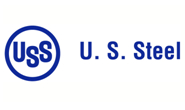Market Segment

February 28, 2022
U.S. Steel to Add 500k tpy of Pig Iron Production at Gary Works
Written by Tim Triplett
U.S. Steel Corp. is investing $60 million at Gary Works to give the Indiana mill the capability to produce up to 500,000 tons of pig iron annually and provide a critical raw material for the steelmaker’s electric arc furnaces. Once complete in the first half of 2023, pig iron production at Gary will provide nearly 50% of the ore-based metallics needs of the company’s Big River Steel subsidiary in Osceola, Ark.
![]() “U.S. Steel’s low-cost iron ore is an important strategic advantage for the company,” said U.S. Steel President and CEO David Burritt. “Our ability to control this important steelmaking input is a valuable competitive differentiator for our growing fleet of electric arc furnaces. An investment in pig iron is an important first step to translating our low-cost iron ore advantage to our EAF footprint while driving efficiencies at Gary Works.”
“U.S. Steel’s low-cost iron ore is an important strategic advantage for the company,” said U.S. Steel President and CEO David Burritt. “Our ability to control this important steelmaking input is a valuable competitive differentiator for our growing fleet of electric arc furnaces. An investment in pig iron is an important first step to translating our low-cost iron ore advantage to our EAF footprint while driving efficiencies at Gary Works.”
The announcement by U.S. Steel comes as no surprise as mills across the country rethink their raw material strategies. Experts predict the growth of lower-emitting EAF steel production will result in a shortage of prime scrap in the years to come, boosting demand for pig iron to fill the gap. The conflict between Russia and Ukraine – both major exporters of pig iron – stands to make the shortage of iron units even worse. Mills like Cleveland-Cliffs, Nucor and now U.S. Steel have taken steps to keep control of raw material supplies in their own hands, including investments in scrap processors and production of scrap substitutes such as direct-reduced iron (DRI), hot-briquetted iron (HBI) and pig iron.
U.S. Steel said its decision to self-fund pig iron production rather than contract for it is expected to further enhance Big River Steel’s cost structure while adding value at Gary Works by driving blast furnace efficiencies without reducing Gary Works’ raw steel output. The company expects to maintain its previously stated 2022 capital spending budget of $2.3 billion by offsetting the pig iron investment within the capital budget.
By Tim Triplett, Tim@SteelMarketUpdate.com







